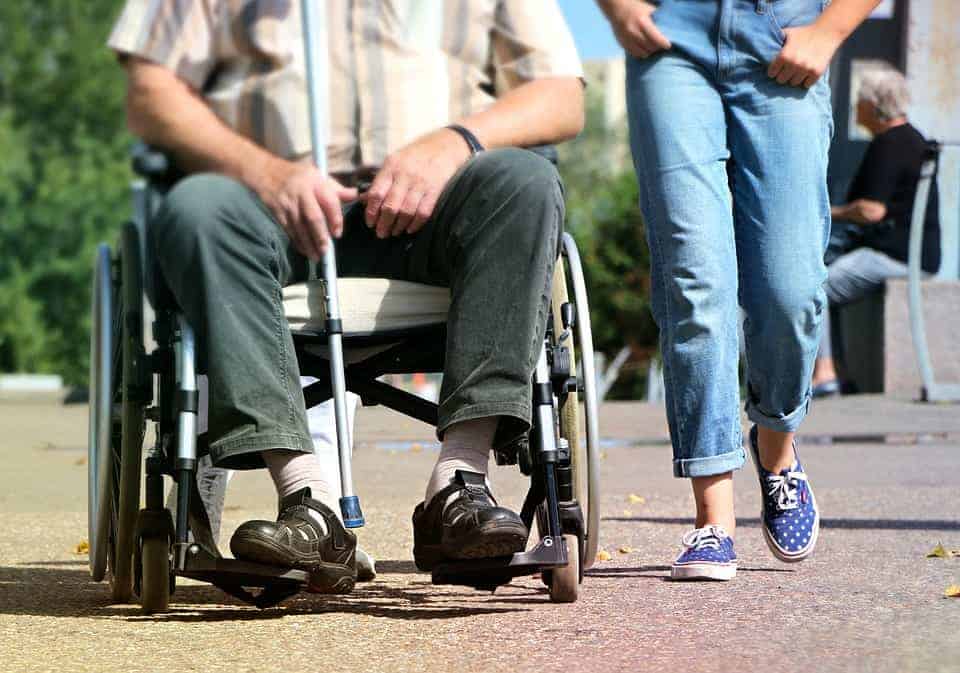A disability doesn’t need to limit your activities, and in fact, it should not. Physical activity is therapeutic and restorative to the body; whatever the fitness level, there are some basic activities that can have positive impacts on your holistic health and well being. Talk to your doctor before beginning any new fitness routine for continuity of care.
It is estimated that only around half of the adults in this country get enough physical activity and exercise. Physical activity helps to prevent and curb the risk of chronic diseases, which affects around one out of two adults in the US. Can mobility aids help get individuals up and moving? The answer, in short, is ‘yes’!
A disability doesn’t need to limit your activities
A disability should not impede some type of regular fitness routine; it should be the underlying reason and precipitant for regular activity and exercise! Your provider should have suggestions for low-impact activities that can help you improve range of motion and flexibility, but that won’t pose a risk. Reap the rewards of regular movement, regardless of your current physical condition or limitations:
Live Longer
It is estimated that people who get regular physical activity live longer and are at much less risk for common health issues like diabetes, heart disease, obesity, and certain types of cancer. Individuals that live with chronic conditions, such as Lupus for instance, are better able to manage symptoms and reduce discomfort with regular physical exercise and healthy lifestyle choices.
Feel Sharper
Did you know that physical activity can make you feel mentally sharper? It’s true; exercise can help mental health and cognition, especially as you get older. Physical activity is attributed with longevity and living a longer life, but it also can help keep symptoms of dementia and memory loss at bay. The best thing that loved ones and caregivers can do is to encourage use of skills like vocabulary, math, and memory with puzzles and games while also facilitating a physical fitness routine or regimen that the individual can follow.
Improve your Mood
A little physical activity and movement can help alleviate symptoms of anxiety and depression widely- not just in those with physical disabilities. Improve mood and help establish a purposeful sense of routine with a daily walk, stretch, or other fitness modality. The results are impressive and may improve overall quality of life dramatically in those that participate consistently.
See Change
When you become involved in even very low-key and low-impact activities, there are other subtle changes that may have life-altering effects. For example, regular movement and fitness help create energy; you can feel invigorated after a workout. Also, there is a chance of socialization when engaging in physical activity that may foster friendships and enhance self-esteem. Don’t forget that physical activity is great for insomnia or sleep disturbances; even implementing small periods of low-impact movement can give you a great night’s sleep. Make note of the changes and differences to measure how physical activity may be improving your overall quality of life.
Pain Relief
If you struggle with chronic pain, improved conditioning through regular physical activity will reduce swelling and pain in most cases.
Mobility Aids Help
Try mobility aids and devices to make regular exercise feasible. This includes things like railings where you walk or canes for a little extra balance or lifts to get in a pool and walkers to get around town. Talk to a mobility professional in your area to learn more and see these devices in-use.
Seniors Benefit
In short, seniors benefit from regular activity- regardless of their current fitness level. Some of the varied benefits for older Americans are:
-
- Better sleep
- Improved coordination
- Better balance
- Reduced fall risk
- Less pain in joints
- Strengthens bones
- Curbs muscle loss
- Can delay cognitive declines in some seniors
There are numerous benefits of physical activity for the older generation; talk to your provider or practitioner if you need help getting started with a regimen.
Remember December 3rd
On December 3rd, pay tribute to those with physical limitations on International Day of Persons With Disabilities. International Day of Persons with Disabilities aims to transform attitudes and networks for people living with disabilities while creating activities and disseminating information surrounding disabilities in communities widely.
What can you do? Honor someone that has limited mobility with a kind word, friendly gesture, or caring offers, such as a ride or a coffee.
Can mobility aids help you increase your level of physical activity? Yes- call us today.
Talk to the industry professionals at Pacific Mobility; we have the expertise to discuss options with you, while also demonstrating how the products are used for prospective patrons in the Bay Area. Reduce your risk of chronic disease and make positive health changes with regular activity and movement; call today to learn more.
President, Husband, Father, Grandfather Graduate of UC Davis- Bio Sci Major- Go Aggies! Jeff has extensive experience in all of Pacific Mobility’s products and services, and specializes in accessibility products as well as stairlifts, ceiling lifts and custom wheel chairs. His hobbies include spending time with family, gardening, mountain biking, exercising and off road motorcycle riding.
24 years as Owner/President of Pacific Mobility Center – selling, installing, and servicing stairlifts, porch lifts, ceiling lifts, pool lifts, handicap ramping, specialty wheelchairs, scooters, power wheel chairs, and other power mobility devices
Certified Environmental Access Consultant since 2008
Licensed General Contractor since 1998
Certified Aging in Place Specialist since 2016
Board Member for Home Access Professionals
Member of Association of Members of the Accessibility Equipment Industry (AEMA)




